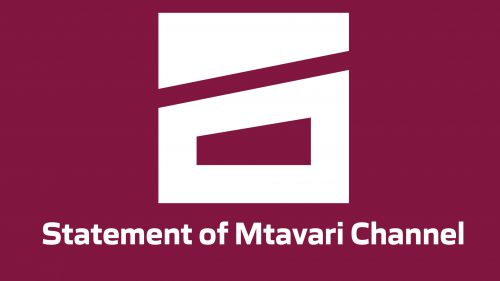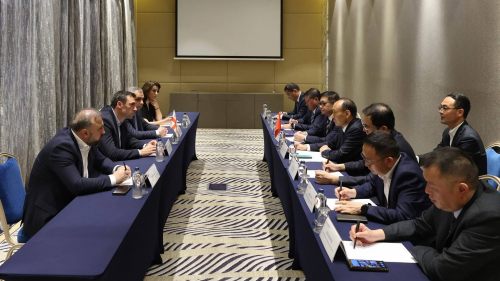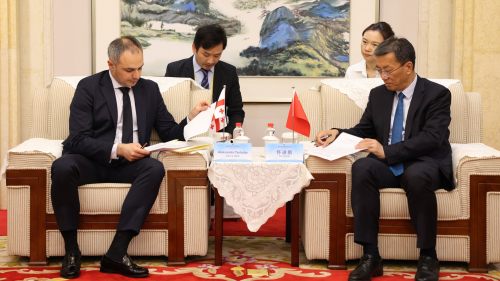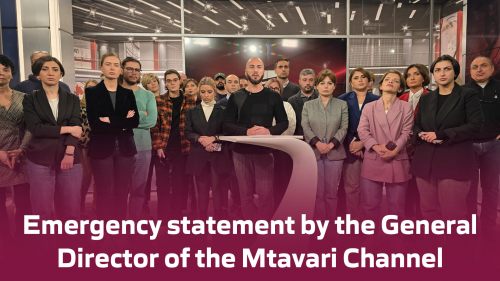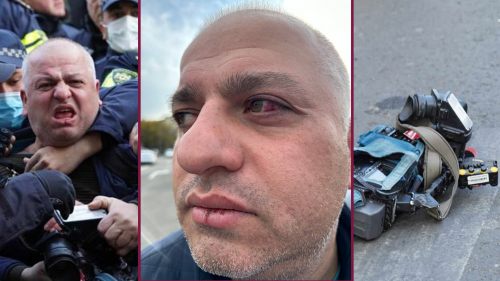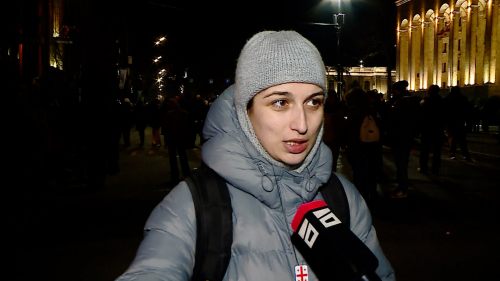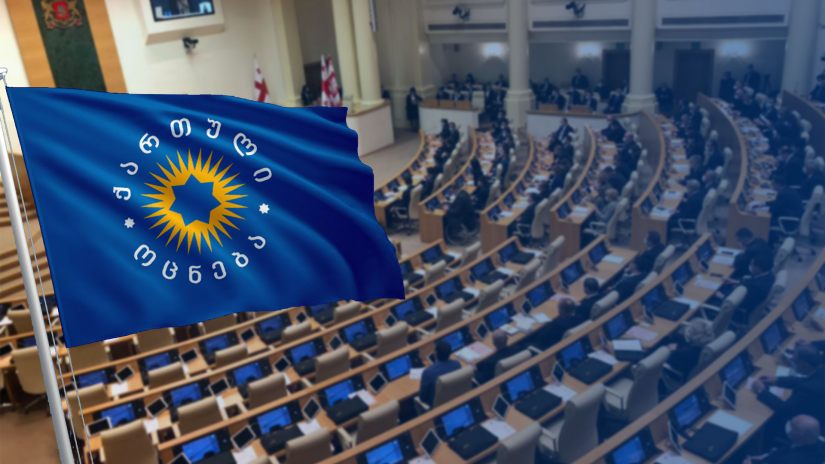
The amnesty bill initiated by the Georgian Dream in connection with the events of June 19-21, 2019 is known. The government bill states that all persons who committed crimes in connection with the events of June 19-21, 2019 and do not reject the amnesty should be exempt from criminal liability and punishment.
The amnesty also applies to a person who prepared or attempted to commit a crime. The bill in full:
Article One:
• Exempt from criminal liability and punishment all persons who have committed a crime in connection with the events of June 19-21, 2019 and does not refuse to be granted amnesty in accordance with the rules established by this law.
• The amnesty provided for in this article shall also apply to a person who has committed or attempted to commit a crime under this article.
• Exemption from criminal liability and punishment provided for in this Article shall also apply to probation.
• The fine imposed as a punishment for the crime under this article, which is enforced at the time of enactment of this law, shall not be returned to the convict.
Article Two - The amnesty provided for in Article 1 of this Law does not apply to the crimes provided in following articles of Criminal Code of Georgia, Article 177, Article 144 1.a, article 144 3.a.
Article Three:
• At the stage of investigation, the decision to extend amnesty to the accused, including the wanted accused under this law, after examining the circumstances provided for in Articles 1 and 2 of this law, shall be made by the relevant prosecutor within 1 week after the entry into force of this law. If a decision is made to extend amnesty to a person, the measure of restraint applied shall be revoked.
• The decision to extend amnesty to the accused, including the wanted defendant, as well as the convict at the stage of the criminal case, shall be made by the relevant court at the next court hearing after examining the circumstances provided for in Articles 1 and 2 of this Law. If a decision is made to extend amnesty to a person, the measure of restraint applied shall be revoked.
• If the criminal case is over, the decision to extend amnesty to the convict under this Law shall be made by the District (City) Court of First Instance after examining the circumstances provided for in Articles 1 and 2 of this Law.
• In the case provided for in paragraph 3 of this Article, within 1 week after the enactment of this Law, after investigating the circumstances provided for in Articles 1 and 2 of this Law, the District (City) Court shall send the initial case of the convict to: A) a penitentiary institution, if the convict is serving a sentence in a penitentiary institution; B) The Bureau of Crime Prevention, Execution of Non-custodial Sentences and Probation, if the convict has a non-custodial sentence or is in probation.
• The decision to extend amnesty to a wanted convict under this law shall be made at the next court hearing after examining the circumstances provided for by this law: A) the Court of Appeals, if the verdict against him/her is appealed in accordance with the procedure established by Part 3 of Article 292 of the Criminal Procedure Code of Georgia; B) the Supreme Court, if the verdict against him is appealed in accordance with the procedure established by Article 300, Part 3 of the Criminal Procedure Code of Georgia.
• If the wanted convict has not appealed against the verdict in accordance with the procedure established by Article 292, Part 3 or Article 300, Part 3 of the Criminal Procedure Code of Georgia, the decision to extend amnesty to him/her after examining the circumstances provided for in Articles 1 and 2 of this Law, the district (city) court shall issue the initial judgment.
• In the case provided for in paragraph 6 of this Article, within 1 week after the enactment of this Law, after investigating the circumstances provided for in Articles 1 and 2 of this Law, the General Prosecutor's Office of Georgia shall send the personal file of the convict to the District (City) Court.
Article four:
• Proceedings are ongoing against a person who is not covered by the amnesty provided by this law. This person uses the right to a fair trial. In case of a guilty verdict, the court shall issue a verdict and impose a sentence in accordance with the rule established by Article 269, Part 5, Subparagraph “a” of the Criminal Procedure Code of Georgia. The mentioned verdict is appealed in accordance with the Criminal Procedure Code of Georgia.
• A person against whom a guilty verdict has been handed down by a court of first instance has the right to withdraw his/her refusal to extend the amnesty provided for in this law at any time. If the said refusal was withdrawn: A) at the stage of consideration of the case in the Court of Appeal or Cassation, the decision on release from punishment and probation is made by the relevant court at the next session; B) After the completion of the legal proceedings, the decision on release from punishment and probation is made by the district (city) court that issued the initial verdict.
• In the case provided for in sub-paragraph "b" of paragraph 2 of this Article, the district (city) court sending the initial verdict shall send the personal file of the convict to: A) a penitentiary institution, if the convict is serving a sentence in a penitentiary institution; B) The Bureau of Crime Prevention, Execution of Non-custodial Sentences and Probation, if the convict has a non-custodial sentence or is in probation.
Article Five - In case of criminal prosecution of a person for committing a crime subject to amnesty under this Law after the entry into force of this Law, the term provided for in the first paragraph of Article 3 of this Law shall begin from the moment of indictment.
Article Six - This law shall enter into force upon publication.
As for the draft law on exemption from administrative fines, Article 1 provides, exemption from administrative fines for all persons who have been charged with the said penalty for violations committed on the events of June 19-21, 2019.
However, if the person has already paid the fine they will not be refunded.



